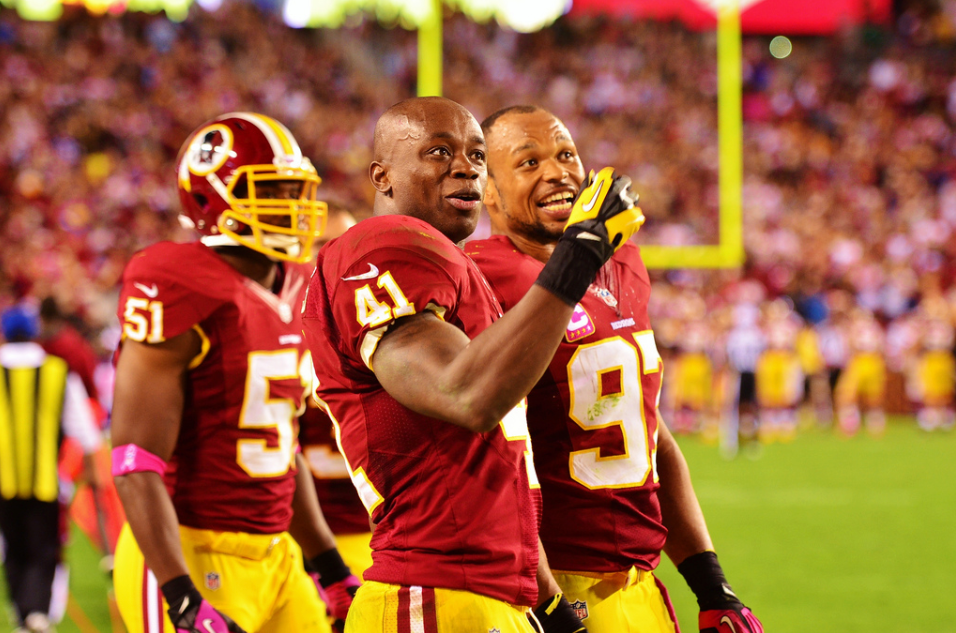Team’s caricature of Native culture is way out of bounds
Over the past few months, new voices continue to join the ongoing pressure on the National Football League team based in Washington, D.C. to change their controversial name and logo.
In the past year, politicians like U.S. President Barack Obama, celebrities like Mike Tyson, John Oliver, Sarah Silverman, and even former players on the team have spoken up about the need for a name change.
Websites like Etsy and Canada’s Apple store have changed their policies to ban the team’s name. Several major newspapers, including the New York Daily News, have also jumped on the ban-bandwagon in the recent months.
In June, the United States Patent and Trademark office cancelled six trademark registrations for the team’s name on the grounds that it is “disparaging to Native Americans.”
Now, owner Dan Snyder and his team are attempting to sue the group of Indigenous people who were responsible for the trademark cancellation—a lowball move in an attempt to curb that growing pressure to change the name.
Sorry to break it to him or anyone that supports the team’s name, but that pressure is just going to grow stronger.

For years, Indigenous people have been expressing how they are offended by the name and stereotyped imagery. Unfortunately, when it comes to Indigenous people, society has a hard time understanding how Native mascotry and other forms of cultural appropriation is a form of racism—something that would not be tolerated if it were any other race, ethnicity or culture.
While opinions toward examples of cultural appropriation among Indigenous people are diverse, nothing is more annoying than having non-Natives trying to disprove what is and isn’t offensive to Indigenous people that speak out against the name.
A team’s traditions and their fans’ attachment to the name seems to always trump our traditions and concerns. We constantly have to defend our own identities from being mocked, used as a trend, a form of entertainment and giving people a false sense of honoring Indigenous people.
There is no denying that we have “more important” or “real” issues in our communities, such as alcoholism, drug abuse, housing shortages, healthcare, unemployment, etc.
However, Indigenous people are also seen as less than human by some and that is certainly a real issue too.
The problem with sports mascots and logos using Native imagery is that it is the same issue as other forms of cultural appropriation: they undermine the diversity and true identities of Indigenous peoples by creating highly inaccurate and dehumanizing portrayals.
Our distinct cultures become a fictionalized and heavily stereotyped monolith rooted in colonial ideology. Those images in sports, on television, on the runway, or even Halloween costumes affect what people know and think about Indigenous people. They add layers of misinformation about who we really are. That really affects how society understands those real social, political and economic issues—and it’s kind of hard to do when society’s notion of Indigenous people is bound to something fictionalized and set in the past.
That is reflected in how we are treated by society and the government and poses dangerous implications on how we see ourselves.
According to a 2004 study by Dr. Stephanie Fryberg, when Native youth are exposed to these images, their self-esteem is harmfully impacted, their self-confidence erodes, and their sense of identity is severely damaged.
That impact on our identity is very much prevalent in our communities, such as judging another Indigenous person’s “authenticity” based upon their appearance, internalizing fictionalized stereotypes, focusing on “blood quantum”, or tanning to “look more Native.”
We don’t need our youth dealing those issues. Change the name.




